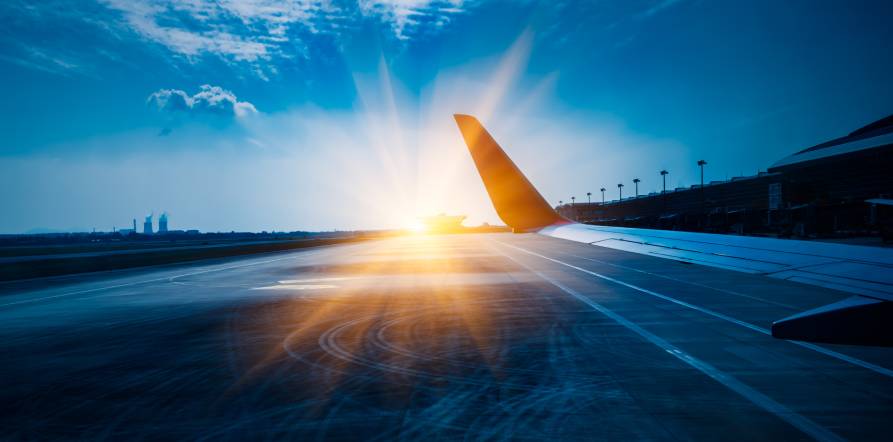
Eerily vacant roads, mask donned delivery men and airlines nearing bankruptcy left, right and centre. Welcome to 2020: a new normal of empty cities, airports and skies, mirroring a near apocalyptic world at times.
Amid the ongoing pandemic and flurry of nation-wide lockdowns, it is no surprise that one industry that has been particularly hard hit, has been aviation. With virtually no scheduled commercial flights in the last two months, and no signs of when regular service would resume, players in this cut throat industry have found themselves in a rather unenviable position. Even once services are resumed, there is high uncertainty regarding when people will be willing to pack into enclosed cabins again. I don’t think it is going to be any time soon.
It is fair to say that even in good times, this is one industry that struggles to stay afloat. More so if you’re not a rich oil state owned carrier (Emirates, Etihad and Qatar, I am looking at you). For lesser mortals, this becomes a sheer battle for survival, especially during an unprecedented time such as what we are seeing right now. And there is enough evidence to reinforce this point. India’s state owned Air India has been bleeding money since years. Yes, it has been plagued by mismanagement and some poor leadership and ensuing commercial decisions. But the point I am trying to convey is that, had it been a private airline, it would have filed for bankruptcy long back and gone into administration. This is really the story of most private airlines, with one major exception. The no-frills airlines. Low cost carriers like Ryan Air and EasyJet in Europe and Southwest in the USA, seem to be doing relatively better in their own regions. This is largely attributed to cutting out all the slack and value added services that discerning travellers might be after and focussing primarily on getting people to their destinations, on time, thereby ensuring quick turnaround. In recent times, this model has found quite a few takers, especially on shorter routes. This lean business model has proven to be the way to go for most private carriers.
The rest of the carriers, full service airlines, have continuously face a daunting task - taking on the 3 Middle Eastern Goliaths. And so, they have slipped into offering services only slightly better than the no frills segment, at prices way higher. Most of these are national airlines of their respective countries. Money has really been no object, and it is in their country’s best interest to keep their flags and airlines flying (sky) high. The product remains sub-par and consumers are faced with a lack of alternatives, leaving them with no option but to fly them.
There have been a few outliers who have dared to enter into the luxury flying segment, to take on the Middle Eastern giants. Richard Branson is one of them, and the most peculiar one.
For one of the richest men in the world, flying in style has always been at the forefront of his aviation businesses. Thirty six years ago, stuck in Puerto Rico, tired of airlines not caring about their passengers, Branson ventured into the segment with the vision of putting customers first. And so Virgin did, and in grandeur. The brash entrepreneur has done things his way since day 1, no matter how outlandish they might seem to the common man. His recent idea of entering the flying cars segment is testimony to this. From being amongst the first in the world to offer exquisite lounges, limousine pick up drops for business class passengers, gourmet cuisine at 37,000 feet, state of art aircrafts, Branson has been a trendsetter. And in the process has developed a product to rival the best. And also, prevent British Airways and Qantas from having complete monopoly in their respective markets. Inherently, this competition has been nothing but good for customers.
This played out well for years on end. Until the coronavirus brought nations to their knees. With grounding of planes, private carriers had no option but to start rethinking their business models. And without access to limitless sources of funding available to its larger competitor, Branson made an urgent plea to the UK government for a loan of GBP 500 million, also offering to put up his own private island, Necker Island, in the Caribbean as collateral. This is in addition to a request for a GBP 700 million bailout from the Australian government. The carrier has been compelled to layoff thousands of its staff to avoid bankruptcy.
The plea led to a massive furore amongst British parliamentarians, since Branson by virtue of being a resident of the UK Virgin Islands, pays virtually no taxes in the country. Another lobby is desperate to provide Branson all the help he needs, to prevent a complete takeover of British skies by British Airways, which cannot be a good thing, at all!
Down south in Australia, Virgin Australia left with no option but to go into administration, is targeting a complete sale by the end of June. Deloitte, appointed as the administrator, recently revealed that the consortium has received expressions of interest by 20 parties, so the intent to take over the floundering airline is very much there. Etihad is one of the big names to throw their hat in the ring.
While the debate on whether Branson should get government support rages on, it is evident that the good days of aviation are firmly behind us, as the industry as a whole faces a rather uncertain future. This will also kill further product differentiation, and leave passengers at the mercy of plane jane state owned carriers. Unless, of course, your state is an oil rich middle eastern country!